Cancer Research UK extends its opt in marketing campaign
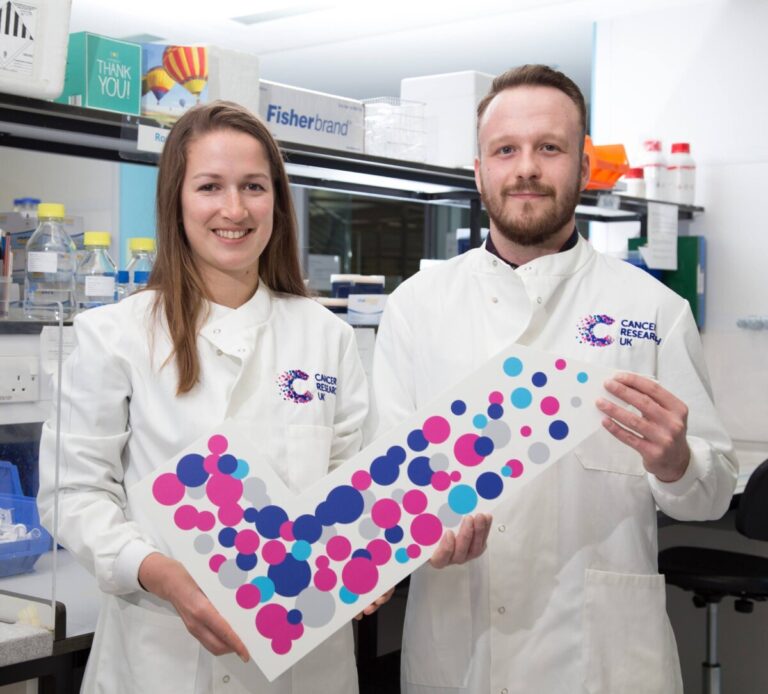
Cancer Research UK has extended its marketing campaign to promote its ‘opt in’ approach to communicating with individuals. From 1 July 2017 it will only contact supporters who have given “unambiguous and explicit permission” for the charity to contact them for future fundraising support.
The first phase of the campaign began in April 2016 when it started asking all new supporters to opt in. Even before then the charity had taken an opt-in approach for email and text communications, so was extending it to cover contact by letter or telephone.
From 1 July 2017 this will have extended to all communication methods to existing supporters.
Advertisement
The charity is one of several that have committed themselves to an opt-in only approach to marketing and fundraising, following the public criticism of some fundraising methods in 2015 and 2016. Others taking a similar approach include RNLI, which committed to it in October 2015, and Rethink Mental Illness.
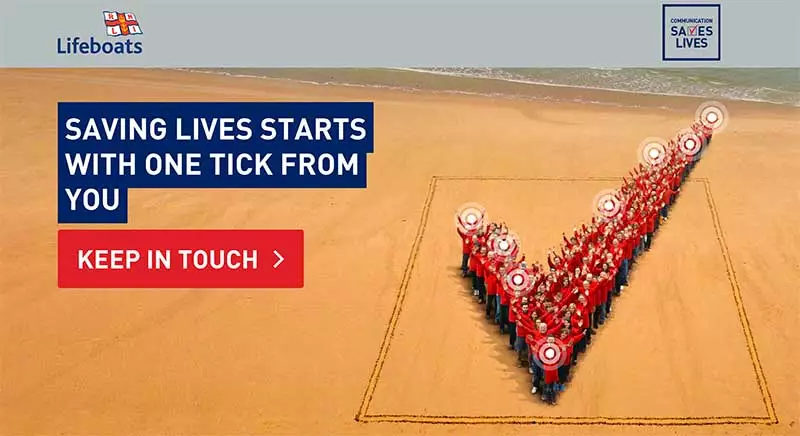
Longer term
Cancer Research UK recognises that, because it will be communicating with fewer people, its income will be affected. However, this move is based on a longer term vision: by putting its supporters’ wishes “at the heart of fundraising communications”, its fundraising team believe that it will subsequently achieve “a greater level of engagement, loyalty and value in the long term”.
Graham White, director of individual giving at Cancer Research UK, said: “Whilst we are very aware that we may lose touch with some of our supporters through this change, which we know will affect our fundraising income in the short term, we believe putting our supporters first will help us protect the future income of Cancer Research UK and safeguard our ambition to bring forward the day when all cancers are cured.”
Your Tick Beats Cancer Sooner
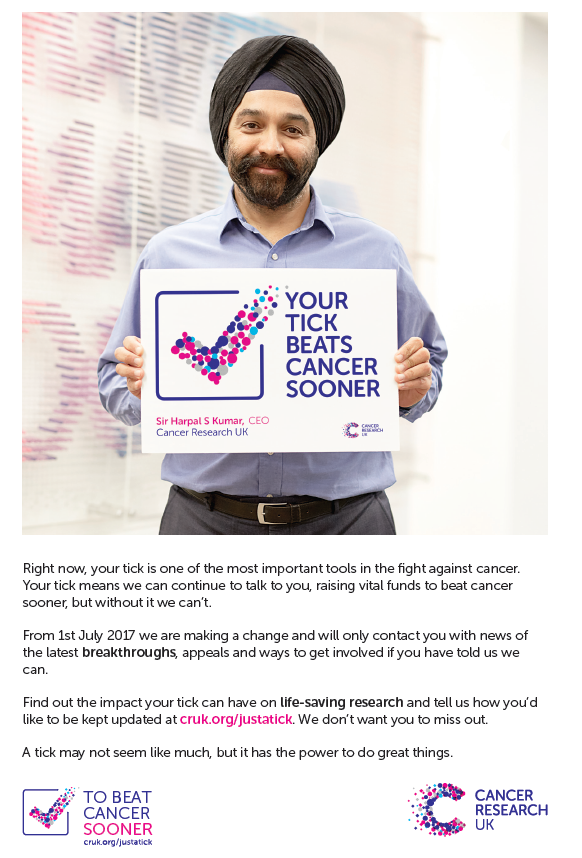
The charity’s opt-in marketing campaign focuses, like that of the RNLI, on the ‘tick’ to indicate a positive choice to be included. The campaign’s adverts in the press, paid and organic social media, YouTube pre-rolls and PR feature the strapline ‘Your Tick Beats Cancer Sooner’.
The campaign is targeting three different audiences:
- current supporters, asking them to take an action and ‘give us their tick’ if they would like to continue to hear from the charity;
- new supporters, asking them to opt in to at least one method of communication;
- and the general public, raising awareness of the fact the charity is becoming an opt in charity and the reasons why.
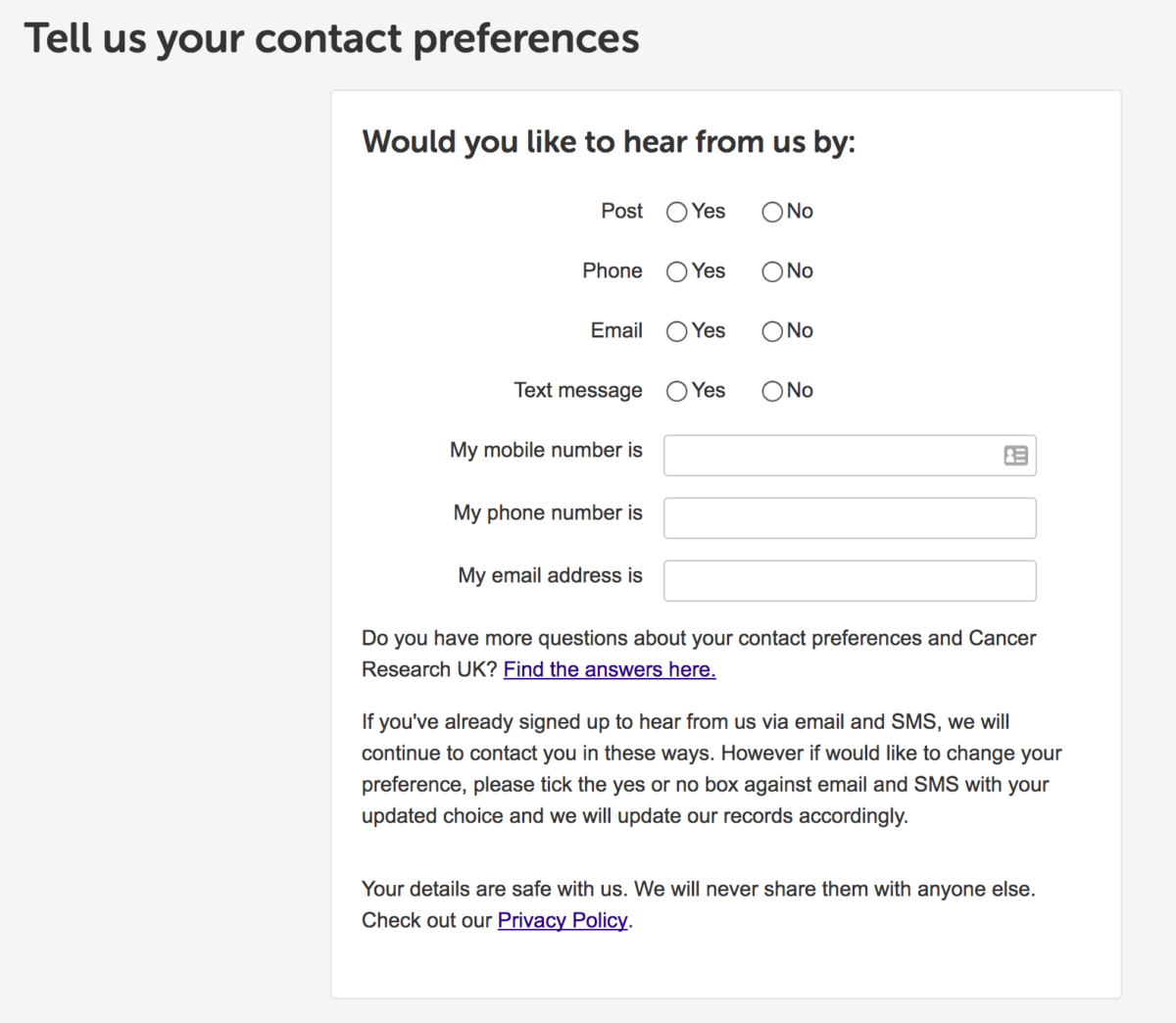

Graham White explained the charity’s approach, without referring to the criticisms of some charities’ fundraising activities in 2015 and 2016.
He said:
“The move for us to become an opt in charity was driven by our desire to provide the best possible supporter experience. Our supporters are at the heart of everything we do, so it’s really important that they understand what they’re opting in to, and actively choose to hear from us about all the things we are doing, the events we are running, our fundraising activities, and how they can be involved.”
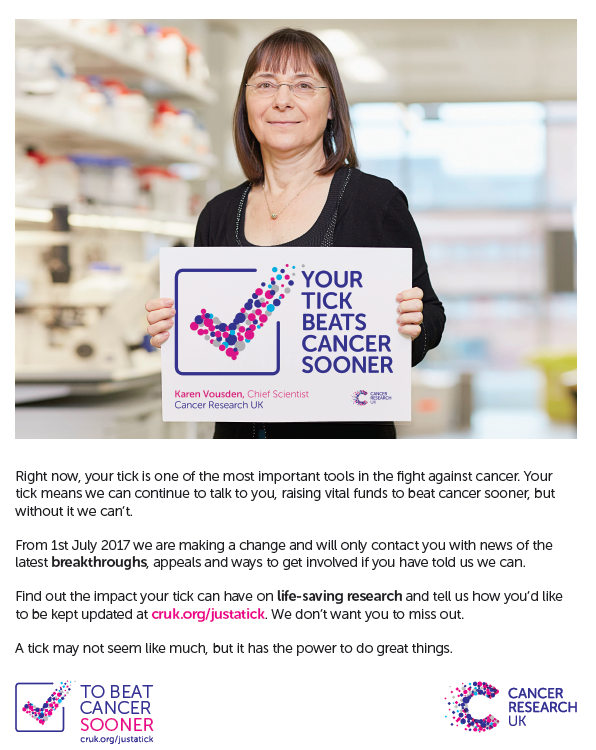
More opt-in fundraising news
- Opt-in or opt-out? Consent or legitimate interest? (5 May 2017)
- Over 60% of charity supporters are likely to opt-in if asked (26 June 2017)
- British Red Cross commits to opt-in only for telephone fundraising (1 March 2016)





